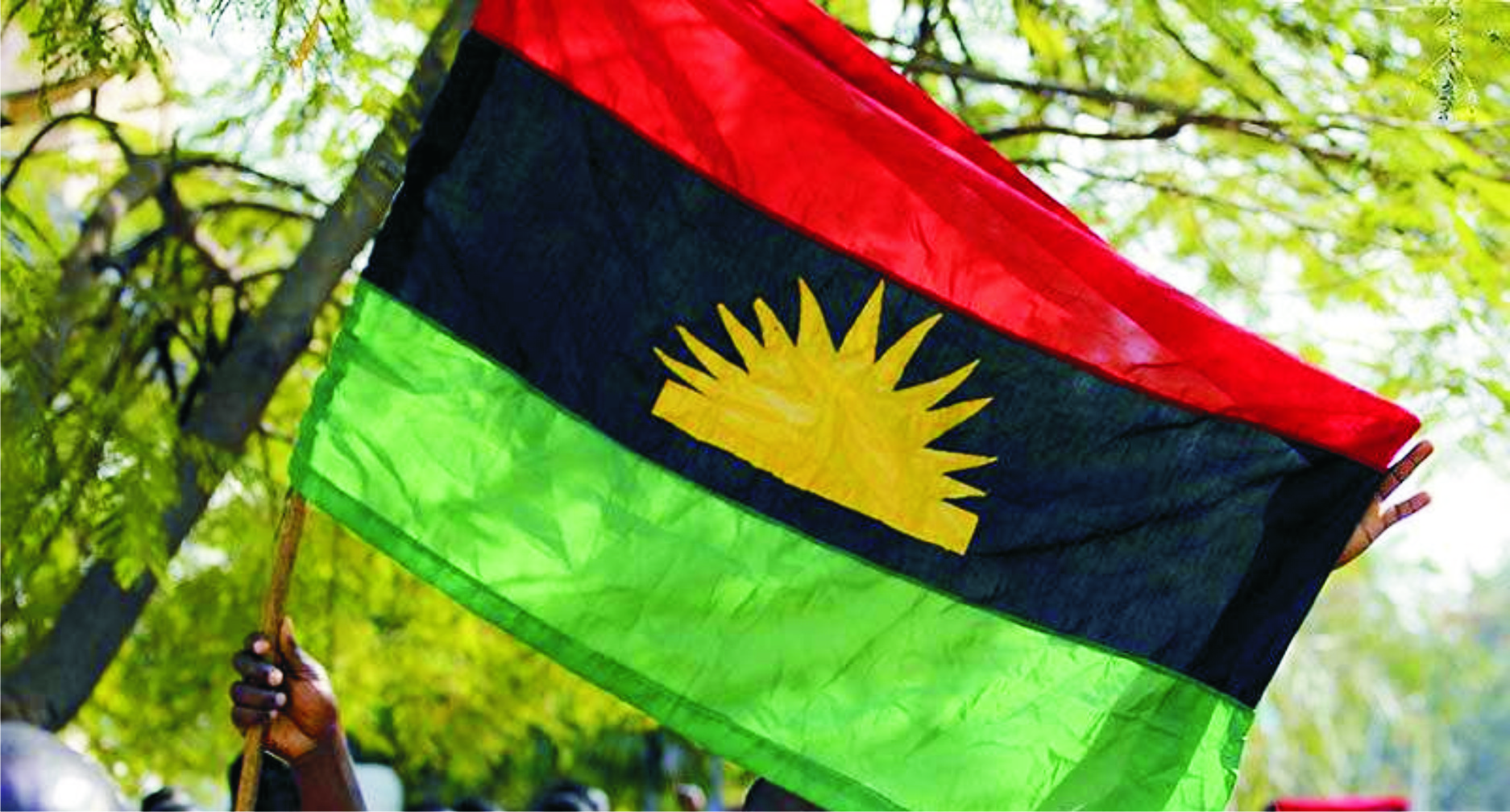Editorial
Enough Of IPOB’s Nuisance

Operating under the simulation of the nationwide #EndSARS protests which severely rocked Nigeria for nearly two weeks, the Indigenous People Of Biafra (IPOB) allegedly unleashed series of violence, convulsing the entire Oyigbo local government council and some parts of Port Harcourt in Rivers State.
Police sources affirmed the grotesque death of four policemen. The attackers cut off the hand of one of the police operatives attempting to shoot at them and hacked him to death. The second victim was burnt alive while the third policeman was stoned to death.
Six soldiers were among security operatives murdered in the violence spree reportedly perpetrated by IPOB. Not less than 15 police vehicles, several police stations, a hospital and a court complex in Oyigbo were razed to the ground by the group.
As if that was not enough, physical commotion by the outlawed group was attended on residents of some targeted communities which, but for the quick intervention of the state government and security agencies, would have resulted in some form of mutually ruinous feud in the state.
Following successful police investigations and indictment of the separatist’s group for the series of violence in Oyigbo which is the members’ operational base, and some parts of Port Harcourt, the Rivers State Government, acting in line with the proscription order of the Federal Government, reinforced a ban on all activities of IPOB.
We are gravely concerned about the grievous complexion such agitations have assumed. In subsequent years, the discomposures of the Biafrans were utilised for various objectives. From a means of drawing attention to legitimate problems of a people within the Nigerian nation, to an avenue for criminality, ethnocentrism and a political tool for self-aggrandisement.
Nigeria belongs to all Nigerians and therefore no one should have the effrontery to terrorise anyone living in any part of the country. Likewise, no group should characterise other Nigerians as sub-human, as such dehumanisation is usually a harbinger to violence.
The right to life, movement and other freedom of Nigerians are conserved by the country’s Constitution and no attempt should be made to infringe on that liberty. The freedom of speech is also guaranteed but it should in no way be mistaken for the freedom to pass unhealthy innuendoes or dissipate resentments.
Sadly, Governor Nyesom Wike’s well-intentioned move to redeem the state from the firm grip of the Biafran group has been misconstrued. Wike’s decision to reinforce the Federal Government’s prohibition was executed to forestall IPOB’s increasing menace and destructive activities in Rivers State.
Popular insinuations that the governor asked the military to kill Igbos in Oyigbo are unsubstantiated. And the inference that Wike was in a fight against the Igbos is equally misguided. Rather, it is the precarious activities of IPOB he seeks to end since the group has been proscribed.
Wike’s government had exhibited reasonable forbearance even when there were substantial reasons to clamp down on the group. Since the Federal High Court proclaimed it a terrorist group, and subsequently its proscription in September, 2017, by the Federal Government, IPOB has had processions in the state without molestations. Perhaps, the government’s inaction was taken for weakness.
The Biafran incendiaries have always aimed at offending the stability of the state by unleashing violence and destruction of lives and property at random. They have remained heedless to warnings and advice to discontinue their insurrectional undertakings. Instead, the organisation vented more and more violence and destruction.
We have had adequate terrorist acts from the paranoid and over-reached Biafrans. It is bad enough that their obnoxious flag is hoisted on our soil. These provocations must not go unchallenged. They must be stopped from subjecting lives and property to constant threats and intimidations. We sound it again and again that Rivers State is not Biafra but Niger Delta.
It comes across as the love, accommodation and hospitality demonstrated towards all residents and business owners in the state have been taken for granted by this very group. To this, we say enough of the nuisance as the government can no longer tolerate their actions. If this is what Biafra is all about, it is, definitely, an idea whose time should never come.
Governor Wike’s formidable stand on the crises and his actions against IPOB are lauded. They are indicative of his devotion to his people and his capacity to safeguard them. Rascals like the so-called Biafrans who delight in troubling the state will certainly be deterred.
Editorial
HYPREP And The Collapsed Water Tank

Editorial
Resurgence Of Illegal Structures In PH
Editorial
Certificate Forgery, Loss Of Public Trust

-

 Sports5 days ago
Sports5 days agoBarca Impress On Return To Camp Nou
-

 Sports5 days ago
Sports5 days agoBundesliga: Oliseh Stars As Bayern Rebound To Thrash Freiburg
-

 Sports5 days ago
Sports5 days agoSunderland Fall At Fulham
-

 Sports5 days ago
Sports5 days agoForest Embarrass Liverpool At Anfield
-

 Sports5 days ago
Sports5 days agoOgoni Nation Cup: Victory Against Amee Base Excites Coach
-

 Niger Delta5 days ago
Niger Delta5 days agoTraditional Ruler Seeks End To Benin Artifacts Unauthorized Promotion
-

 Politics5 days ago
Politics5 days agoCleric Tasks APC On Internal Stability, Warns Otti
-

 Maritime5 days ago
Maritime5 days agoNSC Decries Police Interferences With Cargoes At Seaports

